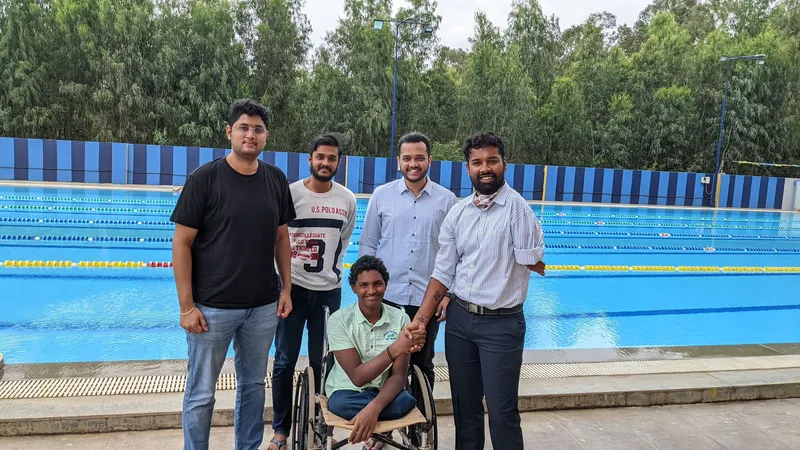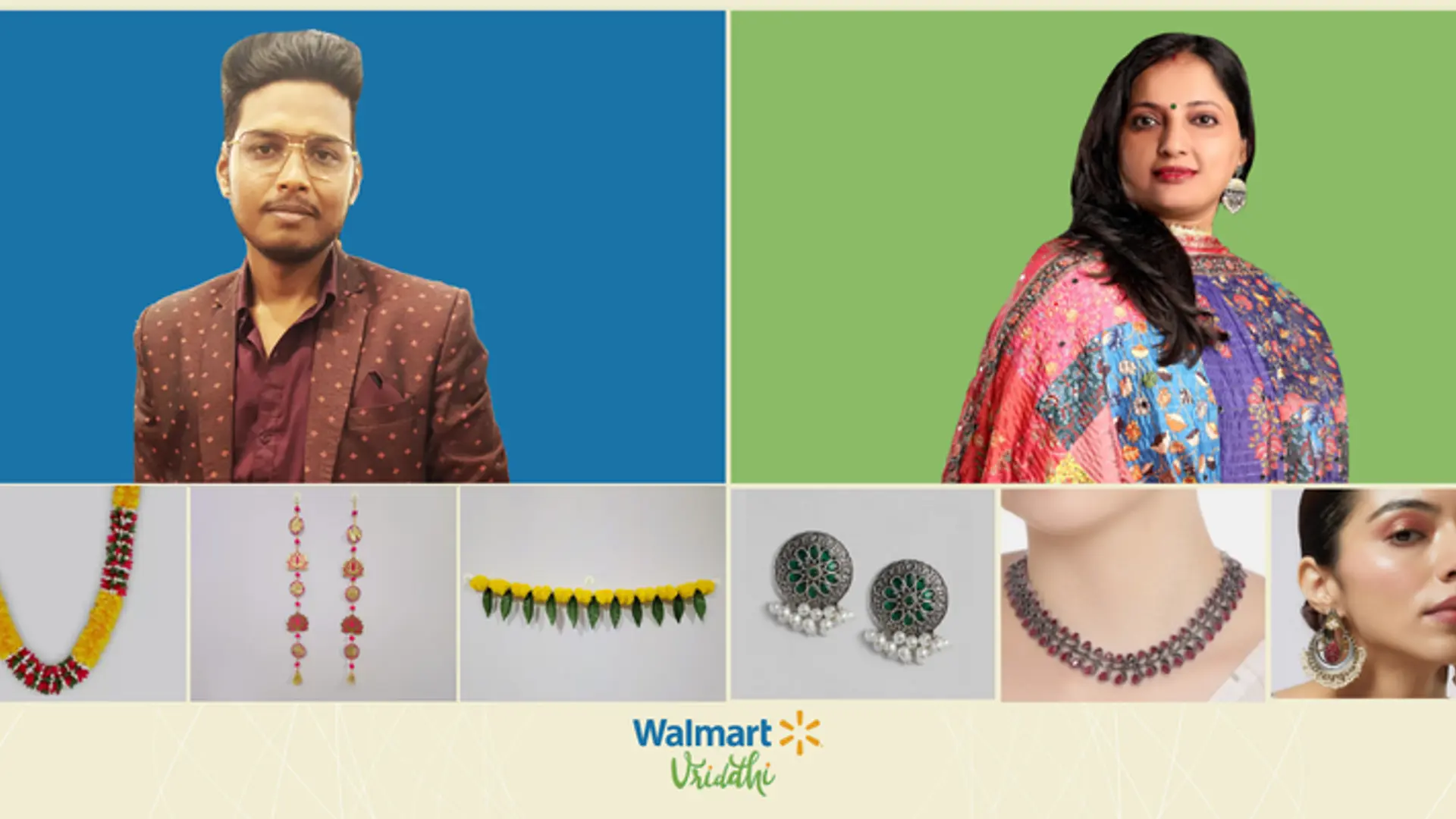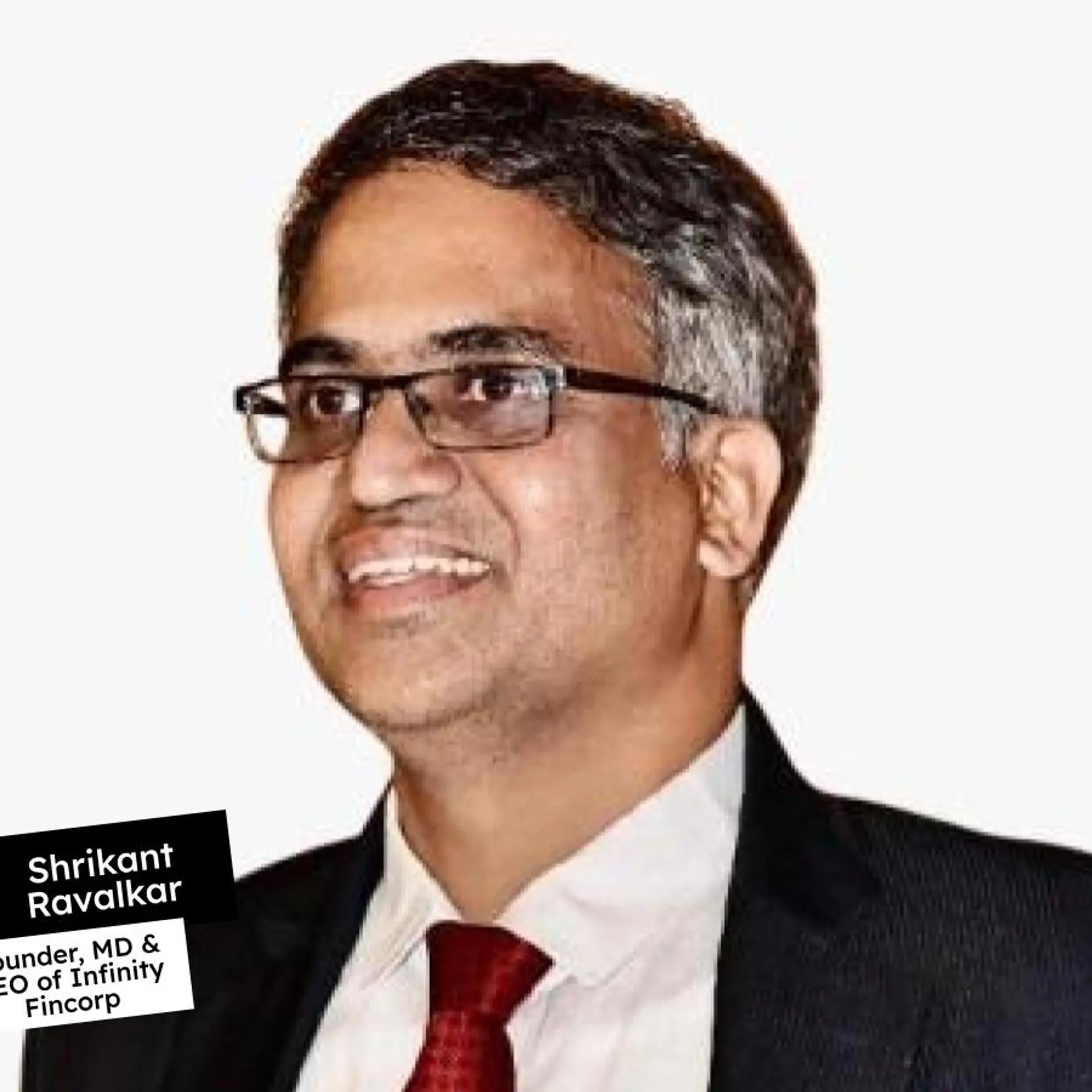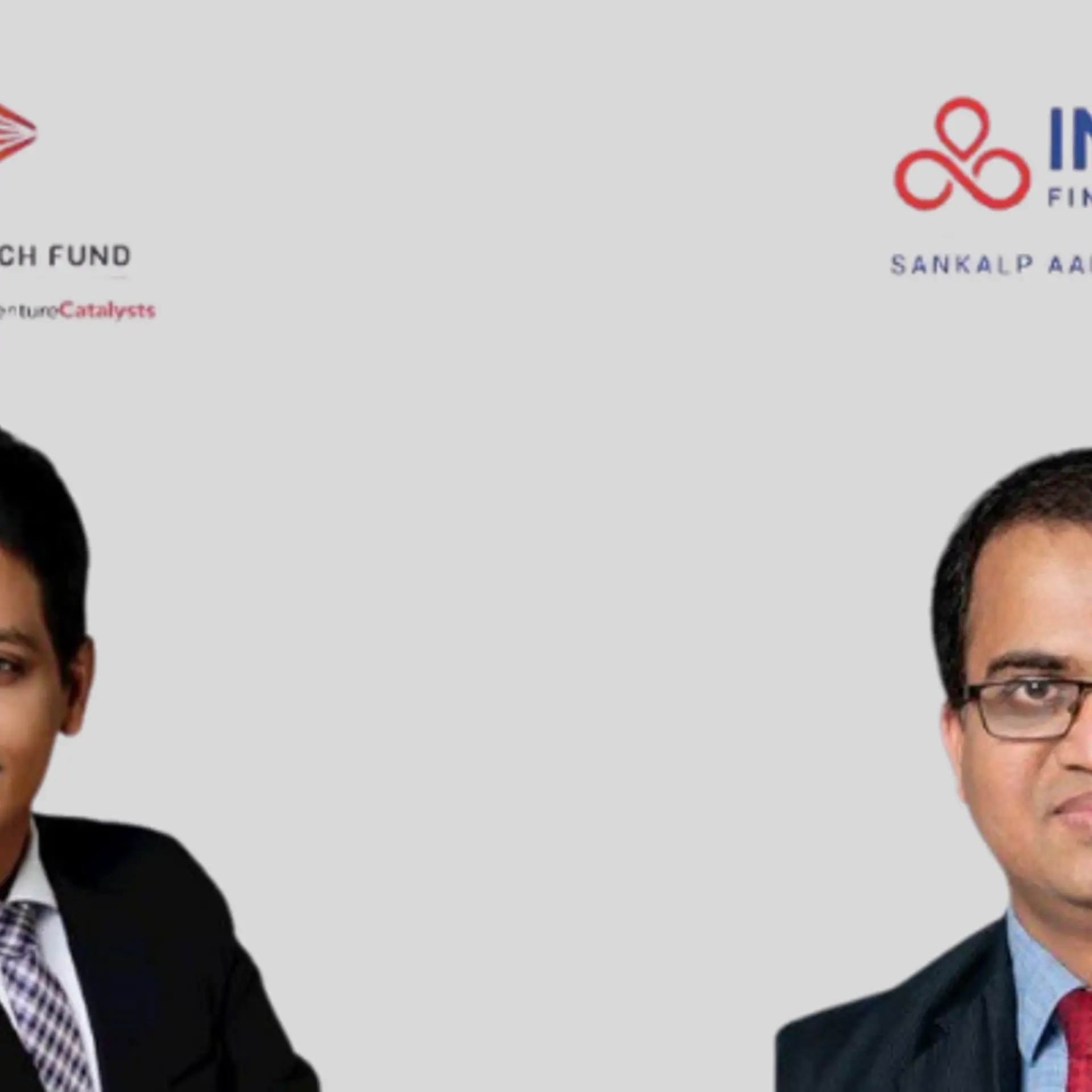BluFin Foundation led by Paralympian Sharath Gayakwad aims to nurture and develop an inclusive sporting ecosystem
This Bengaluru-based organisation wants to bring sports to the underprivileged and the differently-abled through a number of programmes.
When Vyshak Iyengar was pursuing his undergraduate course in engineering, he, along with a group of friends, volunteered with Be The Change, a sustainability-focused NGO in Bengaluru.
There he met Paralympic swimmer Sharath Gayakwad, also a volunteer, and they became friends. In 2017, they teamed up, along with Iyengar’s friends, to start BluFin Foundation to bring sports to the underprivileged and the differently-abled through a number of programmes.

From left, Vyshak, Bhuvan, Amar (other co-founders) and Sharath. In the middle: Para swimmer Gopichand Lingutla
Gayakwad’s journey as a swimmer has been one of persistence and courage, with over 30 international and 40 national medals to his credit. At the 2014 Asian Games, he won six medals and broke PT Usha’s record for the most number of medals by an Indian at any multi-discipline event.
Born with a deformity in his left hand, Gayakwad started learning swimming as it was mandatory for nine-year-olds at Little Flower Public School.
“My parents tried to get me out of it, but my principal urged me to try. The coaches made sure I was comfortable, and though it took me more time to learn compared to the other kids, it was a nice experience,” Gayakwad talks of his early experiences with swimming.
While it started off as a fitness activity, Gayakwad fell in love with the sport. After two years, when he came to know of para-sports, he started training for almost five to six hours every day. It paid off, and he won four gold medals in his first national championships in 2003 and silver and bronze medals at the Asian Youth Para Games.
The young boy was raring to go.
He trained at the PM Swimming Centre in Bengaluru where his coach John Christopher joined when he saw his potential and worked hard with him, though he did not have the experience of training a differently-abled person. Gayakwad went on to win medals at the Asian Para Games in 2010 and qualified for the London Paralympics.
This led to his association with the GoSports Foundation, which supported him till his retirement in 2015.
After his six-medal haul in 2014, Gayakwad felt it was time to retire.
“By that time, competitive swimming had taken its toll on me, and I decided to stop in 2015. Though I did take part in a couple of international events, I did not train for them,” he says.
He took up coaching full-time at the Pooja Aquatic Centre, also volunteering for Be The Change, where he met Iyengar and his group of friends.
In 2017, they started the BluFin Foundation with the aim of supporting an international athlete, but that idea failed because they didn’t find the athletes or funds for support.
“In one of the brainstorming conversations with my friends and now co-founders, Amarth and Ashwin, we spoke about how inspiring Gayakwad’s story was. We wondered if they could try again with a top-down approach–support international athletes, gain recognition, and raise funds to support sports at the grassroots. We wanted to replicate Sharath’s story,” Iyengar shares.
With Gayakwad’s advice to start small, they raised Rs 2 lakh from family and friends and signed up 60 children for training in swimming.
Currently, BluFin’s programme trains 100 children at Shishu Mandir, a school for low-income students in Whitefield, Bengaluru, in partnership with the Zee Swim Academy.
“What’s exciting is that 31 of them have progressed very well. These are kids that have never seen a swimming pool in their life before. And introducing them to the water was so special. We have been able to take 10 of them to the state championships level,” says Iyengar.
The dream, he adds, is to take them to the nationals and, hopefully, some of them will take up swimming professionally and also represent India, with BluFin hand-holding them through the entire journey.
The second initiative from BluFin, called For The Win, supports and nurtures professional athletes. Currently, it supports four para swimmers, one swimmer, and two badminton players.
“When Covid hit, a number of para swimmers in our network lost sponsorship. They couldn’t train and didn’t have the resources to compete at the international level. Sangeetha Mahendran, Founder of Antraprerna Ventures, initially gave us money to support our grassroots athletes,” explains Iyengar.
When the foundation became eligible to raise CSR funds, Mahendran introduced them to Accel Partners and signed four para swimmers, of which two—Puneet Nandakumar and Gopichand Lingutla—represented India at the Asian Games. Nandakumar broke the Asian record for 200 metres in butterfly at the Asian Games last year.
The foundation also signed Pawan Dhananjay, an able-bodied swimmer, to support him on his journey. For a year, it also supported two upcoming badminton players.
Creating an ecosystem
BluFin has tied up with Fast & Up as its nutrition partner and has lawyers and coaches on board to make it a complete ecosystem for athletes. The foundation goes beyond just money and training.
“Gopichand is a double amputee, and we noticed issues with his mobility. We worked with Neomotion, a startup, to develop a wheelchair scooter so that he can move around independently. We want to be a part of our athletes’ lives and make it better,” Iyengar elaborates.
According to him, funding remains a bottleneck in identifying and nurturing good athletes.
“In the Indian sporting ecosystem, we are so focused on celebrating the winners that we don’t celebrate the process. But because of India’s performance at the Paralympics, it is slowly coming into the spotlight. But there is hardly any focus.”
He reached out to a global sports company to sponsor shoes and accessories for their swimmers but they declined.
“It costs next to nothing for them, but it’s not visible, right? Also, very few companies offer CSR funding because it’s the culture of our nation to celebrate heroes after they become heroes. Brands need to think differently,” says Iyengar.
Gayakwad adds that it’s even tougher for para-athletes who “need someone to show a medal to prompt organisations to do something about funding.”
Iyengar says BluFin is speaking to more international-level athletes and building a website to list athletes with detailed information about their performances to attract prospective sponsors.
Edited by Swetha Kannan






